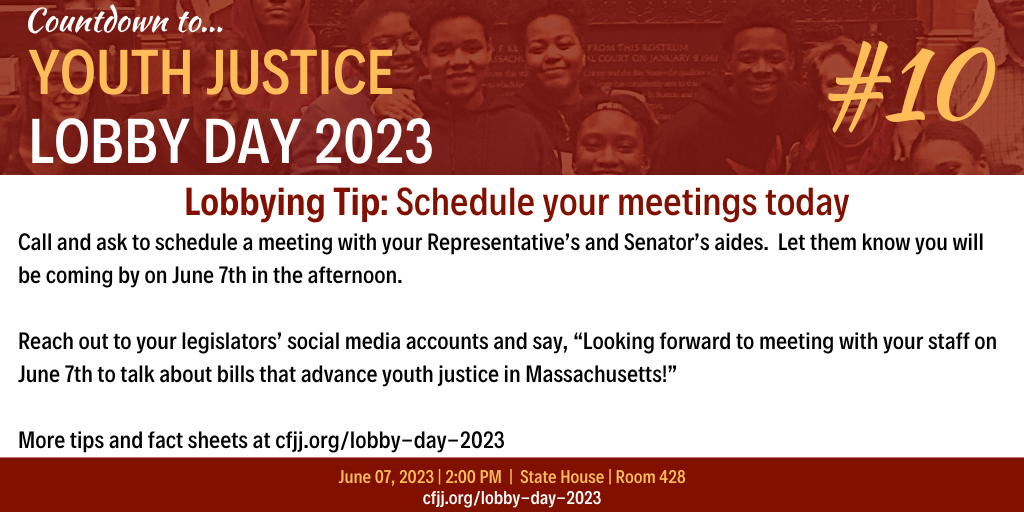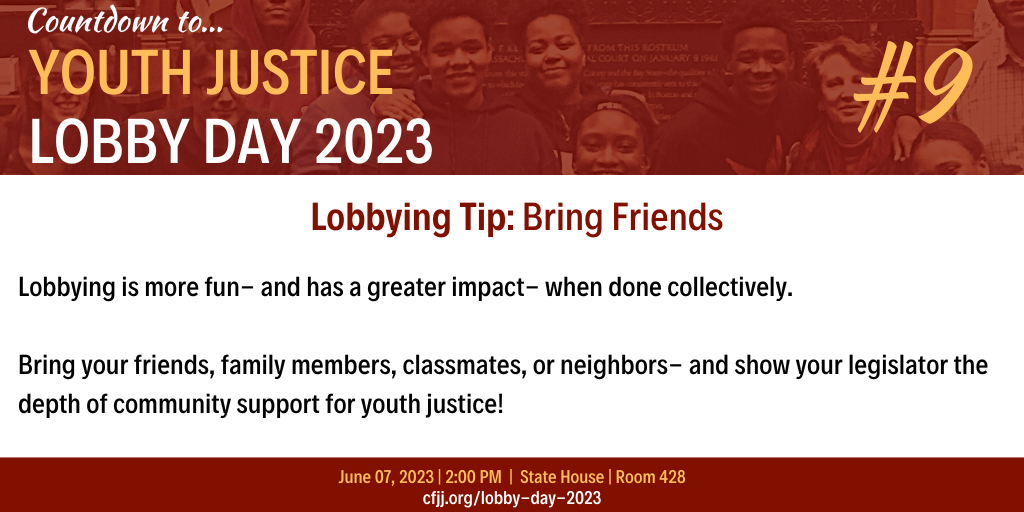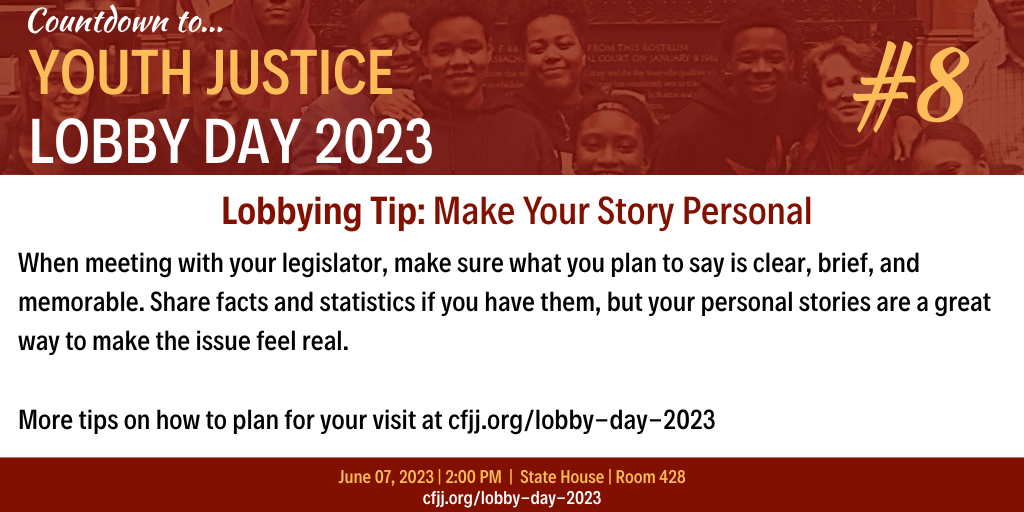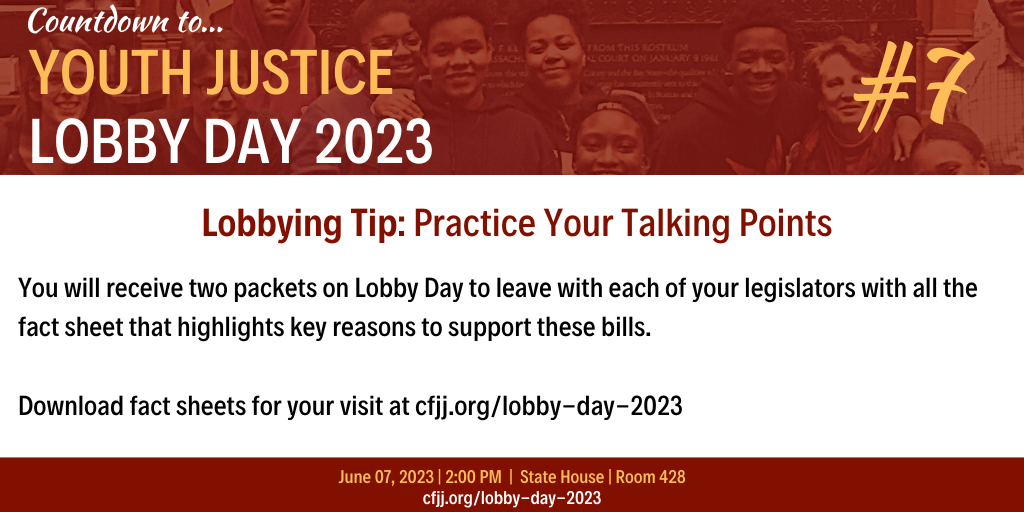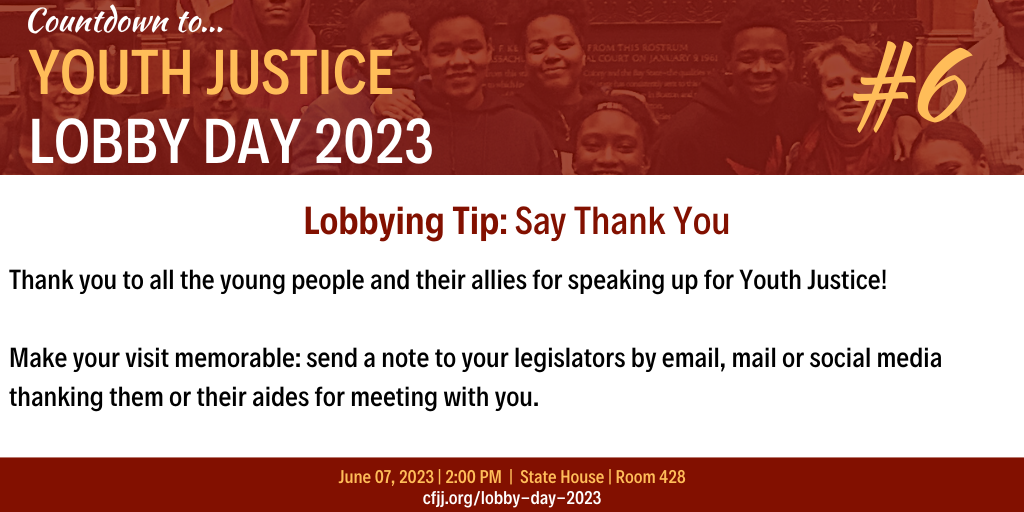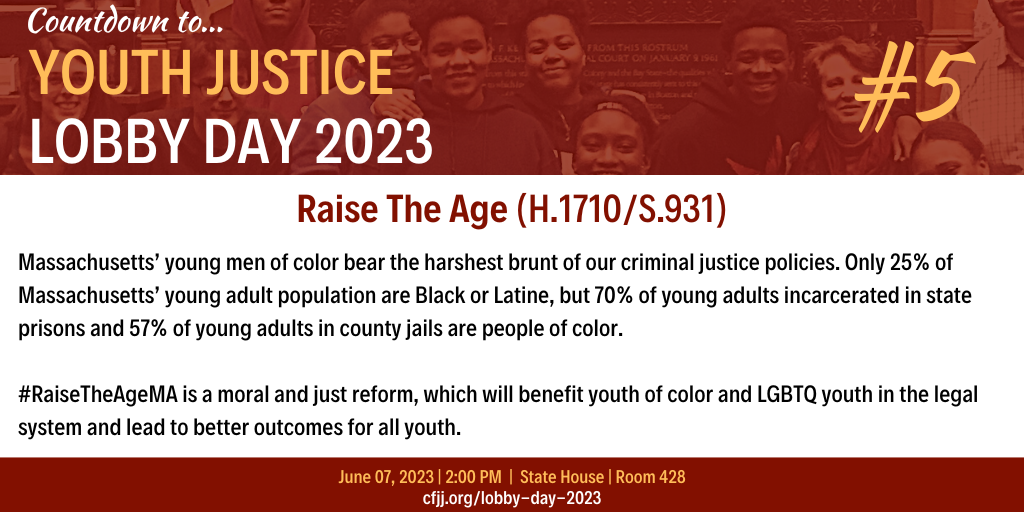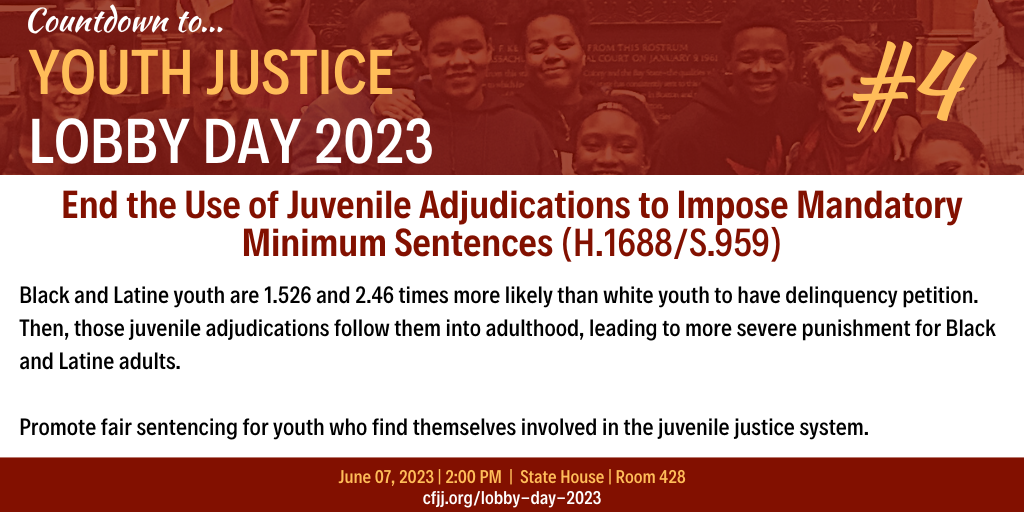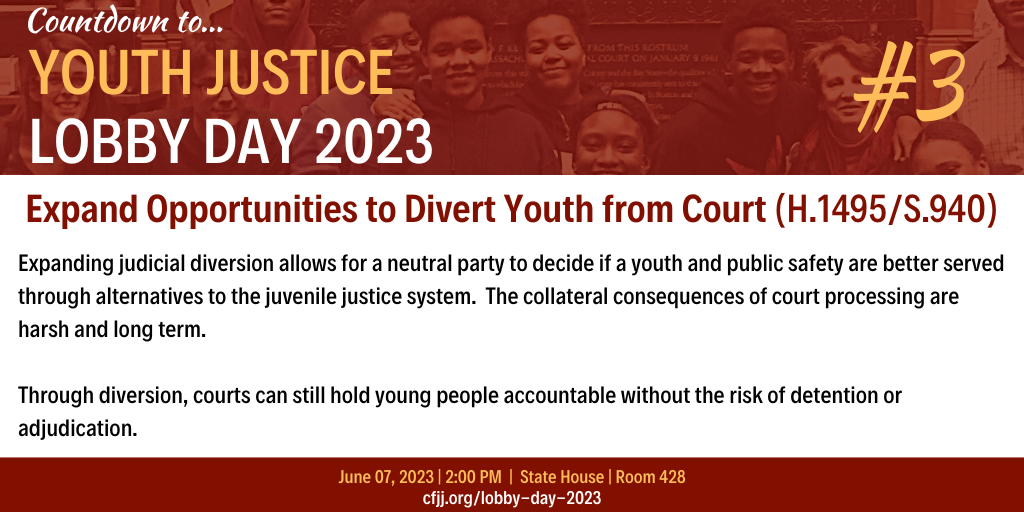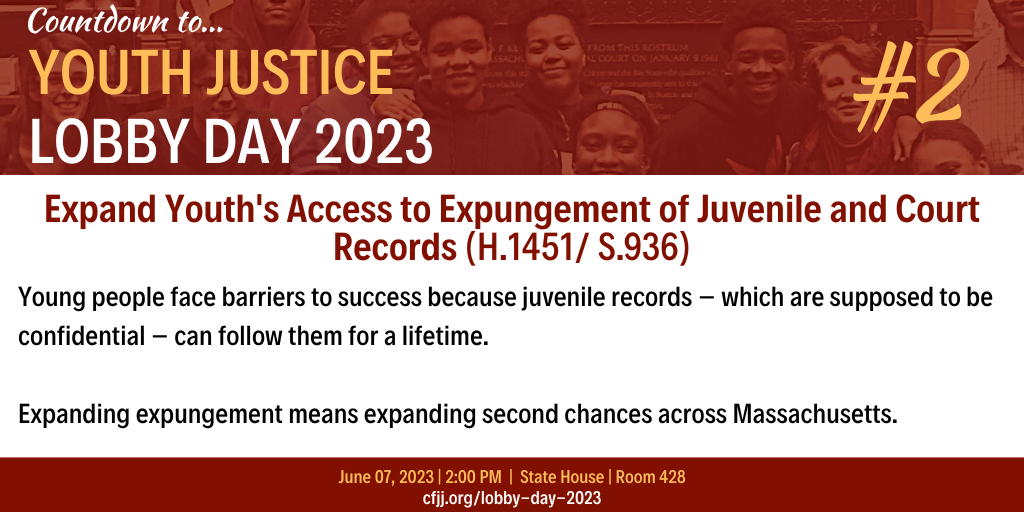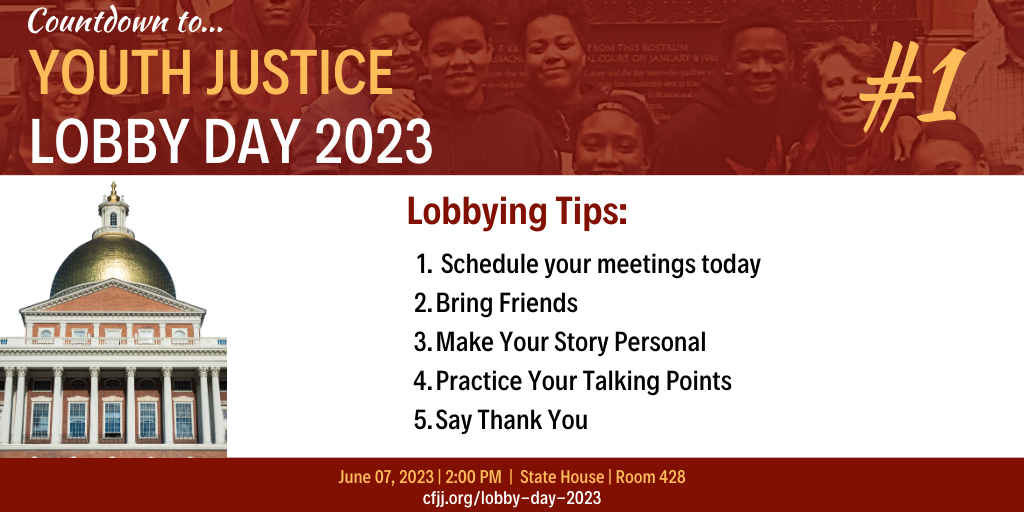Youth Justice Lobby Day 2023
From Vision to Reality
The State House | Room 428 | June 07, 2023 | 2:00PM
doors open and refreshments at 1:45pm
Lobbying tips
Schedule your meeting ahead of time. Reach out to your representative and senator and let them know you will be coming by as a part of Youth Justice Lobby Day. You will most likely meet with an aide, who will report back on your meeting to the legislator. This is typical, and not at all disappointing.
Bring your friends! Lobbying is more fun, and has a greater impact, when done collectively.
Share your personal experience. When meeting with your legislator, make sure what you plan to say is clear, brief, and memorable. Share facts and statistics if you have them, but your personal stories are a great way to make the issue feel real. More tips on what to say in your meeting here.
Practice your talking points. You can download your own copy of the fact sheets here. You will receive two packets on Lobby Day to leave with each of your legislators with all the fact sheet that highlights key reasons to support these bills.
Send a thank you note. Write your legislator a note (either by mail or by email) after your visit thanking them for taking the time to meet with you about youth justice in Massachusetts! You can also thank them directly on twitter or facebook.
Attend a pre-training on Influencing Legislators. Are you nervous or excited to meet with your elected officials, but aren't sure how to? Join us for a virtual training on May 31st at 3:30pm which will cover the basics of meeting with legislators and other elected officials. Sign up here.
Key Issues
Raise the Age: Keep 18-to 20-year-olds out of the adult criminal justice system (H.1719/S.942) Fact Sheet
Older adolescents in the adult criminal justice system have the highest recidivism rates in Massachusetts: our current system isn’t working. Instead of focusing on punishment, the juvenile justice system focuses on young people’s rehabilitation, including education, mental health services, and employment resources.
Diversion: An act promoting diversion of juveniles to community supervision and services (H.1495/S.940) Fact Sheet
Expanding judicial diversion allows for a neutral party to decide if a youth and public safety are better served through alternatives to the juvenile justice system. The collateral consequences of court processing are harsh and long term. Through diversion, courts can still hold young people accountable without the risk of detention or adjudication.
Expungement: An act relative to expungement of juvenile and young adult records (H.1451/S.936)
In Massachusetts, any juvenile record with more than one charge is ineligible for expungement, meaning that the vast majority of people with juvenile records will have those records follow them for the rest of their lives. A teenage mistake shouldn’t be a lifelong barrier to jobs, education, and housing. Fact Sheet
Mandatory Minimums: An act to prevent the imposition of mandatory minimum sentences based on juvenile adjudications (H.1688/S.959)
Juvenile adjudications (though legally not convictions) count towards mandatory minimum sentences in adult cases, and particularly young people in the adult system. This bill excludes juvenile cases as predicate offenses that trigger extreme mandatory minimum sentences in a future case as an adult. Fact Sheet



